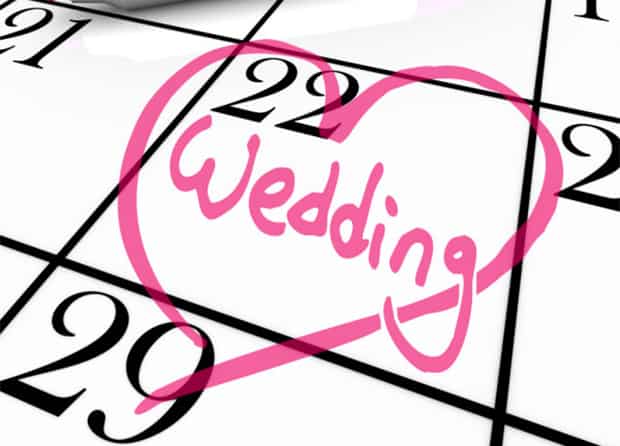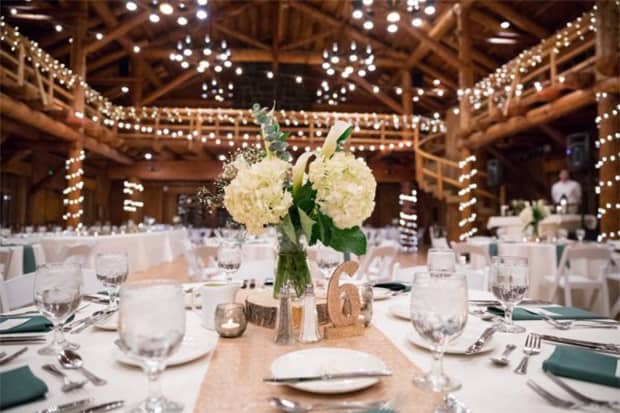Once the rush and excitement of your engagement has died down and the bottle of celebratory champagne has been emptied, what comes next is the most serious aspect of your wedding planning process – none other than your budget.

While the wedding budget is definitely the least enjoyable part of planning your big day, it is a must to talk about money, whether you like it or not. After all, you need a clear and definite budget so you don’t end up with unnecessary debts or wasting your precious limited time at things that you cannot even afford in the first place.
Even if you have already set a general budget for your wedding, it is still imperative to break down the key elements and determine the maximum amount you will spend for major aspects such as your wedding venue, outfits, food and drink, and entertainment.
Read on to know how to set a budget for your wedding so you can stay on the right track:
What is Considered a Sensible Wedding Budget?
Before you let your mind get filled with large numbers, you first need to consider your available financial sources and how much of your money you are willing and ready to allot for your special day.

Have a good talk with your partner as well as your partners if necessary and be honest and open regarding your finances.
Consider your available streams of income. Have you got some savings that you can use as you please? Can you afford to set aside a part of your monthly salaries? Will either set of parents contribute to the expenses? Will you be able to save extra cash for your big day if you cancel some non-essential luxuries in your lifestyle?
When it comes to setting your wedding budget, you have to make sure that you don’t get into debt you cannot even afford just so you can get married.
Calculating the Budget for Your Wedding
The following are the main categories at majority of weddings that will require budget allocation:
- Accommodation
- Cake
- Ceremony
- Decor
- Drink and food
- Entertainment
- Flowers
- Outfits
- Photography
- Stationery
- Transport
- Venue
The general rule of thumb here is breaking down your budget by allocating a set percentage to these areas.

Below is just an estimated percentage but take note that if you are happy and willing to cut back in some areas so you will have a designer gown or if you can go for high street wear because entertainment is more important, you can always decrease or increase these percentages accordingly. What matters here is to make sure that everything is always equivalent to 100%.
- 20% to 25% for food and drink
- 15% to 20% for accommodation and venue
- 10% to 13% for bridal party outfits
- 5% to 10% for decor and flowers
- 5% for photography
- 5% for entertainment
- 4% for videography
- 3% to 4% for rings
- 2% to 3% for transport
- 2% to 3% for gifts and favors
- 1% to 2% for ceremony fees
- 1% to 2% for wedding cake
- 1% to 2% for beauty
- 1% to 2% for stationery
Steps for Wedding Budget Planning Process
Determine who will pitch in
Maybe it is you and your partner alone. Maybe other members of the family or your partners are willing to chip in. No matter what the case might be, knowing who will contribute to your big day is a great first step to calculate the overall budget for your wedding. Try to ask how much the different parties are willing to spend or what wedding aspects they want to pay for.
Know your personal contribution.
After you get a good idea of the amount of financial help you will get, it is now time for you to pay attention to your own contribution. Estimate your personal contribution to your wedding based on how much you and your partner can comfortably and realistically afford, the savings you can get out of your monthly income, and if you have a savings account you can turn to.
Once you are done, add the numbers with the amount you can get from the contributions of other parties so you will know how much you will be working with.
Estimate the guest count.
Since you now have an estimated budget, it is time to estimate your guest count. The total price of a wedding is almost always dependent on the guest count. The guest head count not just determines the venue’s size but also the amount of food and drinks you will provide. Be strategic about your invited guests so you can reduce your wedding costs from the start.
Decide on your non-negotiables
You and your partner may have varied opinions when it comes to the wedding items you can splurge on. Your partner may want an open bar while you prefer not to get your guests drunk so you can pay for a 5-course gourmet meal instead. Be sure to figure out the wedding items that are on top of your list of priorities. Afterwards, you can allot more of your budget for these.
Do your research
Weddings involve lots of cost, hidden and obvious alike. All of these must be considered before you nail down where your budget will go in the end. Every aspect has other areas involved that your budget may soon blow out of proportion. It is best to be familiar with all the hidden costs so there won’t be a lot of surprises in the end and ensure that you stick to your budget.
Do the math
Once you have completed the above steps, the last thing you should do is a final reality check. Is the breakdown of your budget a good match for the actual price of your dream wedding? If your ideal wedding budget cost comes close to your estimated budget, allocate certain amount to every aspect of your event.










